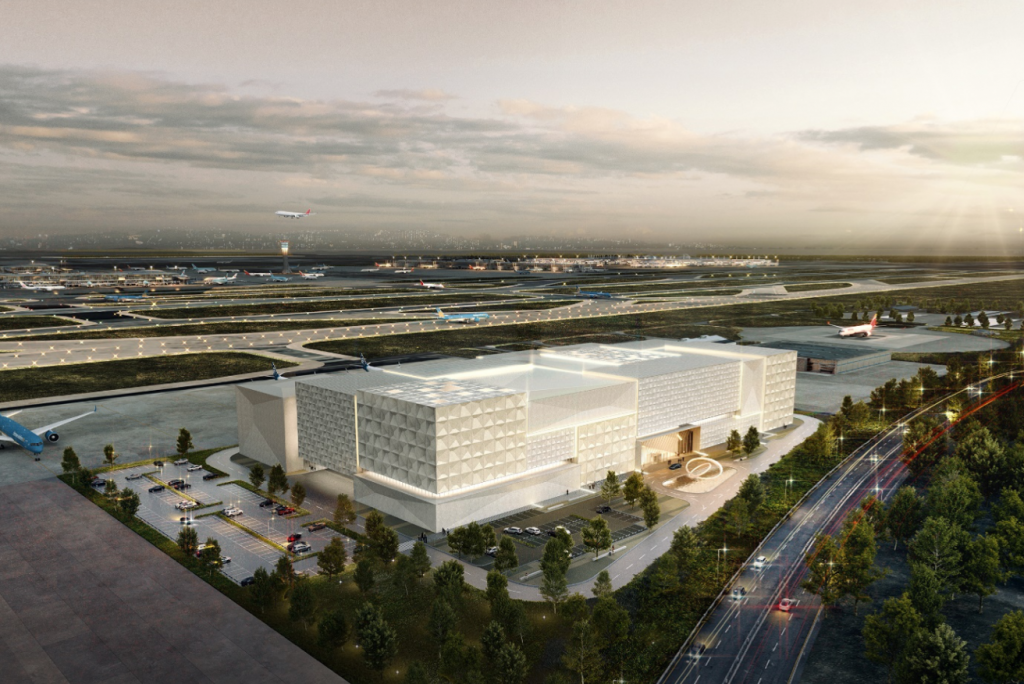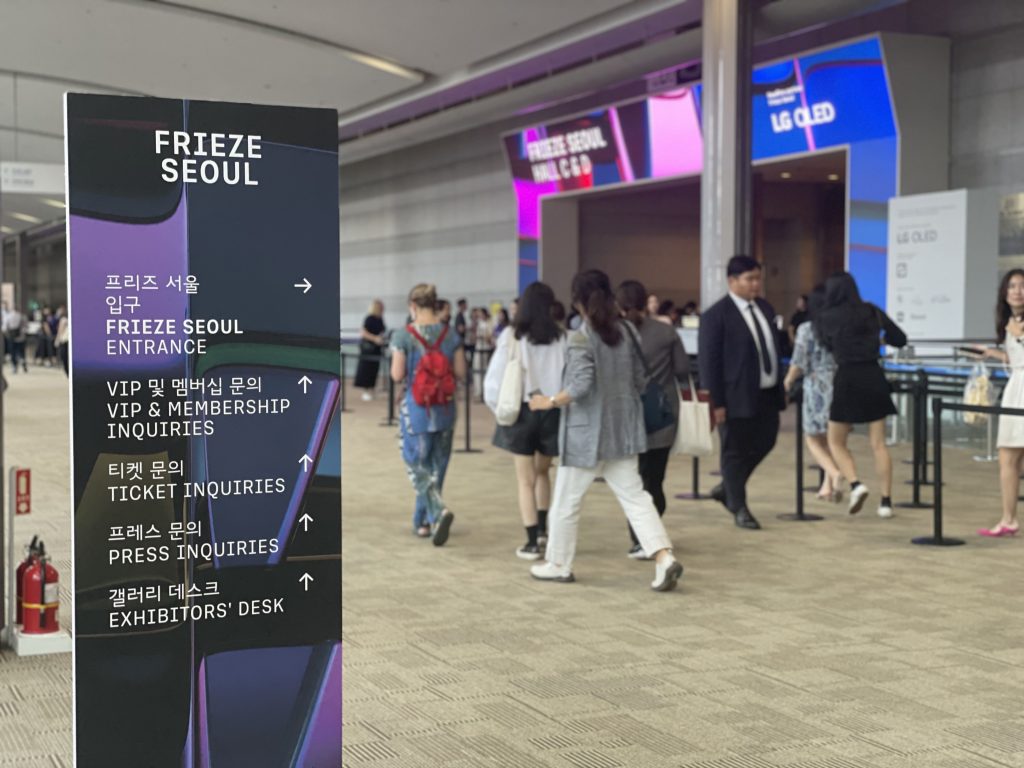Market
South Korea Is Building a Gigantic Art Storage Facility in Its Latest Bid to Be Asia’s Art Hub
The one-million-square-foot space is just part of a much more ambitious plan.

The one-million-square-foot space is just part of a much more ambitious plan.

Vivienne Chow

A new enormous multimillion-dollar art storage—with a total floor area of one million square feet—is now being built next to South Korea’s Incheon International Airport as the country eyes the crown of Asia’s art hub amid local market expansion.
Tentatively called Arshexa Freeport, the project is developed by a consortium led by a Korean company called Arshexa. It claims the new art storage facility will be one of the world’s biggest, consisting five stories including a basement and 138 rooms in various sizes. Occupying about 470,049 square feet of the land under the Incheon International Airport Corporation, the art storage is expected to be completed in 2026 and Arshexa will have the right to operate it for the next 30 years after it opens.
The art storage will have a total investment of $283.3 million, Korea JoongAng Daily reported, and the consortium already involves eight companies. Arshexa has also inked an agreement with Luxembourg High Security Hub, which is adjacent to the Luxembourg Findel Airport, to consult on the development.
Construction is expected to commence in April next year, and the building of this gigantic storage facility is only part of an even more ambitious plan.
“The ultimate goal of the project is the establishment of an Art Hub to turn Incheon International Airport into a culture and arts airport,” Lee Woohyung, executive director of Arshexa, noted in an email.
“Art Hub aims to be an open space where art-related companies and individuals from any country around the world can freely visit and participate, and the construction of this storage facility is the first step of this Art Hub project,” Lee continued, adding that the project will include the building of exhibition facilities for galleries, museums, art fairs, and food and beverage outlets. Incheon International Airport will announce a blueprint and roadmap in the future, Lee said.

Frieze Seoul 2023. Photo: Vivienne Chow.
South Korea’s art market surpassed ₩1 trillion ($812 million) in 2022, a historic high, according to the Korea Art Market 2022 report published earlier this year. The growth was driven by the influx of new individual buyers, as well as an explosion of revenue share derived from the expansion of auctions and art fairs, most notably the successful launch of Frieze Seoul. However, South Korea accounts for just one percent market share by value according to the most recent edition of UBS Art Basel report.
Storage facilities are in demand in Asia among art professionals; cities such as Hong Kong, Singapore, and Beijing are equipped with such spaces. While Hong Kong is a tax-free trading hub and is known for its smooth logistics, facilities in other cities where tariff is in place are mostly located in bonded areas but their standards vary, according to industry insiders.
South Korea currently has several art storage facilities including ones owned by local auction houses, but they are small, industry players said, adding that the service is questionable.
Lee noted that currently there are not enough supporting facilities such as storage and restoration to sustain rapid growth. But having a secure and technologically advanced art storage facility will benefit the country in the long-run, he added, especially when tariff for artworks is zero in South Korea and works by a living Korean artist or priced under ₩60 million ($46,201) are tax free. For works priced above that amount or not conceived by a Korean living artist, a 22 percent tax is levied on a maximum of 20 percent of the work’s sale price.
More Trending Stories:
How an Exclusive NYC Cult Influenced the 1970’s Art Scene
A Rare Soulages Lithograph Possibly Worth $30,000 Sells For $130 in Facebook Marketplace Mishap
Masterpiece or Hot Mess? Here Are 7 Bad Paintings by Famous Artists
Is There a Hat Better Than Napoleon’s? We Rank Art History’s 5 Most Iconic Chapeaux